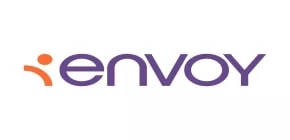On October 8, 2020, The Department of Homeland Security (DHS) is expected to publish a final rule that will heighten requirements for employers seeking to hire foreign nationals on H-1B status.
What does the rule change?
The final rule tightens criteria for the H-1B specialty occupation visa program in a few ways. First, it narrows the definition of a "specialty occupation" eligible for the program by mandating the candidate to possess a bachelor's degree or foreign equivalent more specifically related to the position for which they are applying.
It also requires sponsoring employers to prove that a bachelor's degree is and always has been the minimum requirement for similar positions at their organization. Previously, employers needed only to establish that the degree was common for someone in the role—not in every instance. This higher burden requires employers to establish that they have always required a bachelor degree in fields of study related to the role.
In addition, the DHS rule revises the definition of employment and the employer-employee relationship, in an effort to increase scrutiny on third-party outsourcing companies.
Sponsoring employers who place foreign workers at third-party worksites must submit additional evidence to establish an employer-employee relationship and provide an itinerary if an employee will be at multiple worksites. The rule also reduces validity period for third-party placements to one year, down from a maximum of three years.
The Department of Labor (DOL) also recently published an interim final rule requiring employers to increase what they pay H-1B workers. This rule is also expected to go into effect on Thursday, October 8, 2020.
Who does this impact?
The rule will only impact H-1B cases filed on or after December 7, 2020. Foreign nationals who already have H-1B status are not impacted. However, it is worth nothing that extensions and adjustments for current H-1B holders will be impacted in the future, should the rule move forward without any challenges.
What happens next?
The DHS rule was published as an interim final rule and will go into effect after 60 days. Although employers and the public may comment on the rule, DHS will not consider feedback before implementing the rule on December 7, 2020.
Because it did not go through the traditional review process, the rule is very likely to be challenged in the court system, which could delay or prevent implementation.
Earlier this year, U.S. Citizenship and Immigration Services (USCIS) settled a lawsuit after a district court ruled that its policies scrutinizing employer-employee relationships were unlawful. Another attempt by the agency to impose new degree requirements for specialty occupations was also struck down in court this year.
The content of this article is intended to provide a general guide to the subject matter. Specialist advice should be sought about your specific circumstances.
We operate a free-to-view policy, asking only that you register in order to read all of our content. Please login or register to view the rest of this article.


